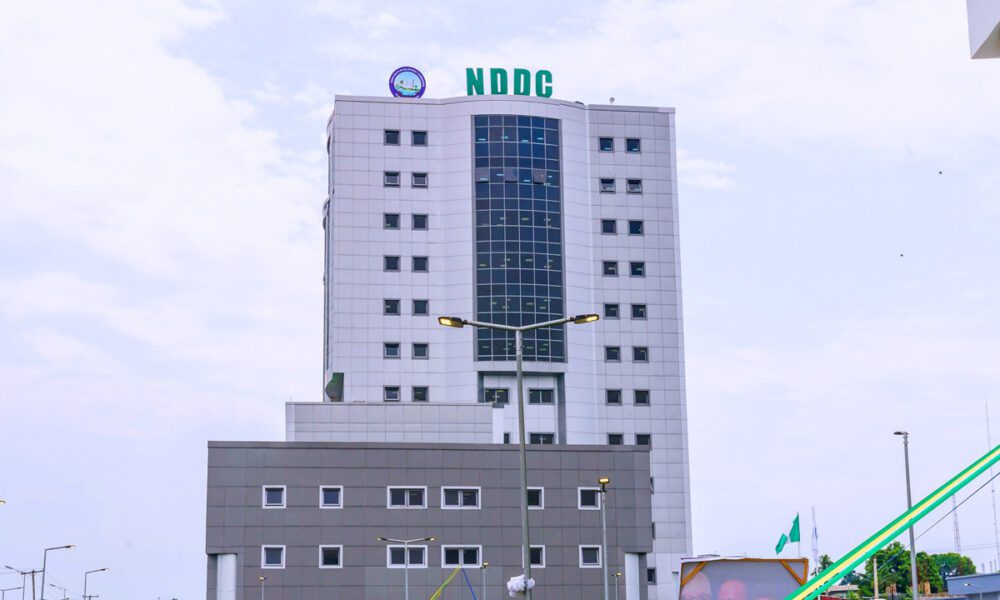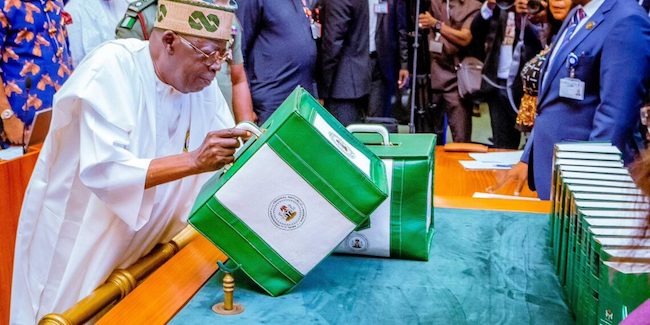The Niger Delta Development Commission (NDDC) has defended its N1.911trn 2024 Budget before the Senate Committee on the NDDC.
The Managing Director of the agency, Dr. Samuel Ogbuku, presented the estimates of the fiscal document to the senators, however said N100b was set used to settle some part of its debts that have accumulated over the years
Dr. Ogboku made the presentation in company top management staff of the commission and the NDDC board members.
He said the Budget was prepared to prioritize improvement in security, job creation, youth and women empowerment, social welfare, education and infrastructure, among others.

According to him, “the proposed Budget seeks to move the Commission from transaction to transformation and was a product of participatory budgeting process that involved all the major stakeholders in the Niger Delta Region with the theme “Budget of Renewed Hope Agenda”.
He said, “In preparing the 2024 Budget, our primary objective has been to qqqqsustain our robust foundation for sustainable economic development.
He said an aggregate expenditure of N1.911trn has been proposed for the Niger Delta Development Commission in 2024
He put the agency’s outstanding revenue from last fiscal year at N12bn; Arrears owed by the Federal Government and recoveries by federal agencies at N170bn.
Ogbuku said the agency proposed to borrow N1trn; projected N324bn as Federal Government contribution and N25bn ecology fund.
The Managing Director added that the commission was expecting N375bn as oil companies’ contributions and projected N5bn an internally generated revenue.
On expenditure, the NDDC planned to spend N38.545bn as personnel cost; Overhead cost of N29.246bn and Internal Capital of N8.785bn.
Ogbuku added that the agency would fund legacy projects with the N1trn it intends to borrow from commercial and development banks while additional N835.222bn.
He said, “As of April 30th 2024, the Commission’s actual aggregate revenue inflow was N683.2bn approximately 78% of the targeted N876bn.
“This comprise N146.4 billion representing (122%) from the Federal Government and N394.5 billion representing (141%) from Oil & Gas Companies. We had a carry forward of N105billion from 2023 representing (2117%).
“Investing in critical infrastructure is a key component of our fiscal strategy under the 2024 Budget Proposals.
“The present management has noted that the Commission alone would not be able to effectively address the development challenges in the Niger Delta region.
“Towards this end, we are re-navigating Its process of intervention by adopting Public-Private-Partnership model as a vehicle to drive a sustainable development in the Niger Delta Region.
“Accordingly, to this end, we are in partnership with the Industrial Training Fund to gainfully engage the youth of the region to reduce crime, economic sabotage.”
On indebtedness, he said the agency made a provision for payment of legacy debt in the budget.
He said, “What we have there is about a hundred million which we believe if we phase out this, maybe in the next 10 years, we should have been able to pay off most of all these legacy debts.
“Some of these debts are even 20 years old. Some of them are 15 years old, but they are not debts you can pay in one year.
“So we just want to phase them within a period of maybe 10 years. That’s why we made that estimate provision.”
He said the agency was also in partnership with the Niger Delta Chamber of Commerce, Trade, Mines, and Agriculture (NDCCTIMA). Several Organisations and State Governments have approached the Commission for partnerships and we are currently engaging them to fine tune the process.
He said, “The main emphasis will be the completion of as many ongoing legacy projects that have advanced greatly.
“It is our expectation that by the end of the 2024 fiscal year we would have completed more than 200km of roads across the Niger Delta Region, as we understand that our people have different expectations on the Budget of NDDC and they believe the Commission will respond to all their demands.
“However, the reality is that resources are limited and no Budget can ever meet and satisfy the yearnings of each and every member of the rural communities.
“We can only devote our efforts to providing support for the needs of the greater number of our people.
“Our fiscal reforms shall introduce new performance management frameworks to regulate the overhead cost.
“Accordingly, only activities that are tied to measurable programmes will be approved.
“We have moved away from the previously line item budgeting system to sectoral allocation of fund to encourage performance and we are confident that this will shore up productivity.”
The Chairman of the Senate Committee on the NDDC, Asuquo Ekpenyong, tasked the agency’s management to ensure prompt submission of their annual budgets.
He said, Your budget must get here early. Let the budget of 2025 reach us by December,2024.
“Some of your innovations like light up Niger Delta and programs for the youth of the area in education sector are also commendable.
“Budget defence of the commission for the year 2024. The commission hasn’t had an operational budget for a while.”
A member of the Committee, Senator Orji Uzor Kalu, said the panel in the 10th Senate, would carry out massive oversight functions on the projects and activities of the NDDC more than ever before.




